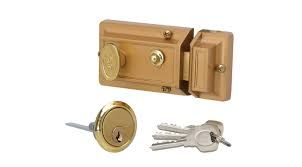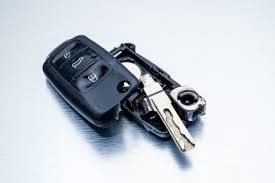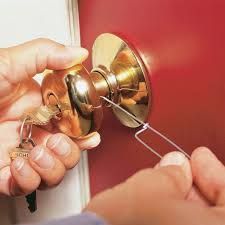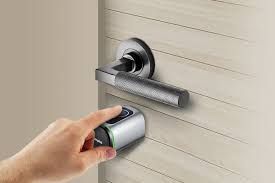Is it cheaper to replace or rekey locks
Is it cheaper to replace or rekey locks
Welcome to our guide on the age-old question: Is it cheaper to replace or rekey your locks? As experts in the field of locksmithing, we understand the importance of security for your home or business. Your locks are the first line of defense against intruders, and ensuring they are in optimal condition is paramount. However, when faced with the decision to replace or rekey your locks, many factors come into play.
In this comprehensive blog post, we'll delve deep into the intricacies of lock replacement versus rekeying. We'll explore the costs associated with each option, consider the factors that influence the decision-making process, and weigh the pros and cons of each approach. By the end of this guide, you'll have a clear understanding of which option is best suited to your needs and budget.
Whether you're a homeowner looking to upgrade your security or a business owner seeking to protect your assets, we're here to provide you with expert advice and guidance. So, without further ado, let's dive into the fascinating world of locks and locksmithing, and uncover the answer to this age-old question.
Read more about How to extract a broken key from a lock?
Understanding Lock Replacement and Rekeying
Lock Replacement
When it comes to lock replacement, you're essentially swapping out your existing locks for brand new ones. This process involves removing the old lock hardware entirely and installing new locks in its place. While lock replacement may seem like a straightforward solution, it comes with its fair share of considerations. Firstly, the cost of purchasing new locks can vary depending on the type, brand, and quality of the locks you choose. Higher-grade locks with advanced security features will naturally come with a higher price tag. Additionally, the installation process itself can be labor-intensive, especially if you're dealing with multiple locks or specialized hardware. However, the upside of lock replacement is that you have the opportunity to upgrade to more secure, modern locks that better suit your security needs. Plus, you'll have the peace of mind knowing that your property is outfitted with brand new, reliable locks that haven't been subjected to wear and tear.
Lock Rekeying
Lock rekeying offers a cost-effective alternative to lock replacement, especially if your existing locks are still in good condition. Instead of replacing the entire lock mechanism, a locksmith can rekey the existing locks to work with a new set of keys. This process involves altering the internal components of the lock cylinder so that it no longer responds to the old key but instead operates with a new one. One of the key advantages of lock rekeying is that it allows you to maintain the existing hardware and aesthetics of your locks while enhancing security. Additionally, rekeying is typically a quicker and less labor-intensive process compared to lock replacement, resulting in lower overall costs. It's also a convenient option if you want to maintain key control without having to distribute new keys to everyone who has access to the property. Overall, lock rekeying offers a practical solution for updating your security without breaking the bank.
Read more about How does the type of lock affect the complexity of the rekeying process?
Factors Influencing Cost:
- Number of locks involved: The total number of locks that need to be replaced or rekeyed will directly impact the overall cost. Generally, the more locks you have, the higher the cost will be, as each lock requires individual attention and labor.
- Type and complexity of locks: The type and complexity of the locks in question also play a significant role in determining the cost. High-security locks or specialized lock systems may require more time and expertise to replace or rekey, resulting in higher costs compared to standard locks.
- Accessibility and location of locks: The accessibility and location of the locks within your property can affect the cost of replacement or rekeying. Locks that are difficult to access or located in hard-to-reach areas may require additional time and effort to work on, potentially increasing the overall cost of the service.
Average Cost Estimates:
- Typical cost range for lock replacement: On average, the cost of replacing a single lock can range from $50 to $200, depending on factors such as the type of lock, brand, and complexity of installation. For multiple locks or high-security locks, the cost can increase accordingly. It's essential to factor in both the cost of the new locks themselves and the labor involved in installation.
- Typical cost range for lock rekeying: Rekeying a lock is generally a more cost-effective option compared to replacement. On average, the cost of rekeying a lock can range from $20 to $100 per lock. However, this cost can vary depending on factors such as the type of lock, the number of pins to be changed, and the locksmith's labor rates. Overall, rekeying offers a more budget-friendly alternative for updating your security while retaining existing hardware.
Considerations for Decision Making
A. Condition of Existing Locks
- Whether existing locks are in good condition or need replacement due to damage or wear: Assessing the condition of your current locks is crucial in determining whether replacement or rekeying is the best option. If the locks are still in good working order and only the keys need to be updated, rekeying may suffice. However, if the locks show signs of damage, such as rust, corrosion, or mechanical issues, replacement might be necessary to ensure optimal security.
B. Security Requirements
- Whether security needs warrant a complete lock replacement or rekeying is sufficient: Consider your security requirements and whether rekeying alone will meet those needs. If you're looking to upgrade your security system or if there have been security breaches in the past, replacing the locks with higher-security options may be the better choice. On the other hand, if security concerns are minimal and you're primarily looking to update access control, rekeying might be a suitable and more cost-effective solution.
C. Budget Constraints
- Considering the budget available for the lock-related expenses: Budgetary considerations play a significant role in the decision-making process. Rekeying is generally more affordable than lock replacement since it involves less labor and materials. If you're working within a tight budget, rekeying may be the more feasible option. However, if security concerns or the condition of existing locks warrant replacement, allocating additional funds for new locks may be necessary to ensure the safety and security of your property.
Pros and Cons
A. Pros of Lock Replacement
- Provides new, updated locks with enhanced security features: One of the main advantages of lock replacement is the opportunity to install new locks with advanced security features, such as high-security cylinders or smart lock technology. This can significantly enhance the security of your property and provide peace of mind.
- Eliminates concerns about old or damaged locks: Lock replacement ensures that you're starting fresh with brand-new locks, eliminating any concerns about the condition or reliability of existing locks. This can be particularly beneficial if your current locks are outdated, damaged, or showing signs of wear and tear.
B. Cons of Lock Replacement
- Higher cost compared to rekeying: One drawback of lock replacement is its higher cost compared to rekeying. Since it involves purchasing entirely new locks and possibly hiring a locksmith for installation, the overall expense can be significantly higher, especially if you have multiple locks to replace.
- Requires installation of new hardware: Lock replacement typically involves installing entirely new hardware, including locksets, strike plates, and possibly even door handles or hinges. This can be more time-consuming and labor-intensive compared to rekeying, especially if the new hardware requires modifications to the door or frame.
C. Pros of Lock Rekeying
- Cost-effective option, especially for multiple locks: One of the primary benefits of lock rekeying is its cost-effectiveness, particularly when dealing with multiple locks. Since rekeying only involves changing the internal pins and tumblers of the lock cylinder, it is generally a more affordable option compared to lock replacement.
- Retains existing hardware and aesthetics: Unlike lock replacement, which requires installing new hardware, rekeying allows you to retain your existing locksets, strike plates, and other hardware. This can be advantageous if you're satisfied with the current aesthetic of your locks or if you have hardware that matches the overall design of your property.
D. Cons of Lock Rekeying
- May not address underlying issues with old or damaged locks: While rekeying can update the keying system of a lock, it does not address any underlying issues with the lock itself. If your locks are old, damaged, or malfunctioning, rekeying alone may not fully resolve these issues, potentially leaving your property vulnerable to security risks.
- Limited security enhancement compared to lock replacement: While rekeying can improve access control by rendering old keys useless, it does not provide the same level of security enhancement as lock replacement. If you're looking to upgrade your security system with new, high-security locks, rekeying may not suffice.
Conclusion
In conclusion, the decision between lock replacement and rekeying depends on various factors, including your security needs, budget constraints, and the condition of your existing locks. Lock replacement offers the advantage of installing new, updated locks with enhanced security features, but it comes with a higher cost and the need for new hardware installation. On the other hand, lock rekeying is a more cost-effective option that retains existing hardware and aesthetics, but it may not fully address underlying issues with old or damaged locks and provides limited security enhancement. Ultimately, it's essential to weigh the pros and cons of each option and choose the one that best suits your individual circumstances and preferences.
Call Us Any Time!








